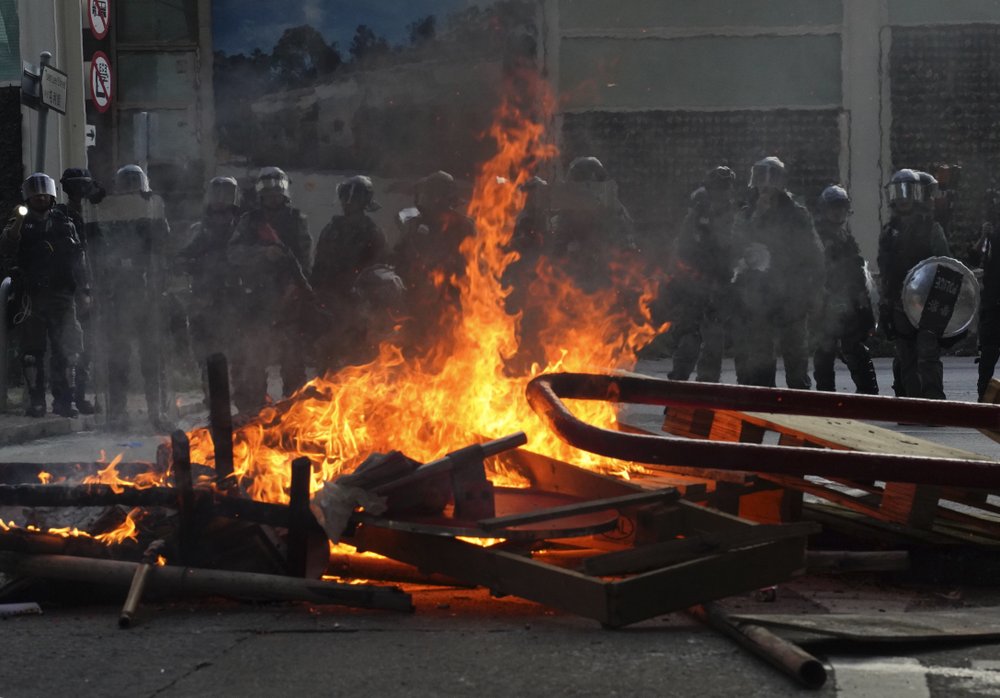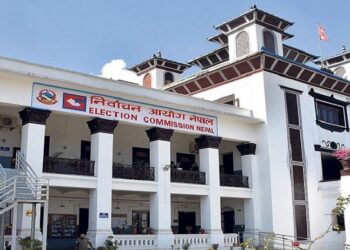HONG KONG: Protesters burned a Chinese flag and police fired pepper spray during a march Saturday in an outlying district of Hong Kong in renewed clashes over anti-government grievances.
Police accused protesters of spraying water at officers during the march by several thousand people in Tuen Mun in Hong Kong’s northwest. Reporters saw at least one person arrested.
The protests started with opposition to a proposed extradition law and have expanded to include demands for greater democracy in the semiautonomous Chinese territory.
The events are an embarrassment for China’s ruling Communist Party ahead of Oct. 1 celebrations of its 70th anniversary in power.
Hong Kong’s government has announced it has canceled a fireworks display that day, citing concern for public safety.
Protesters in Tuen Mun marched about 2 kilometers (1 1/2 miles) from a playground to a government office building. Many were dressed in black and carried umbrellas, a symbol of their movement.
Protesters chanted, “Reclaim Hong Kong!” and “Revolution of our times!”
Most were peaceful but some took down a Chinese flag outside a government office and set fire to it. Government broadcaster RTHK said some damaged fire hoses in the Tuen Mun light rail station.
Organizers announced the event, due to last two hours, was ending after one hour due to the chaotic scene at the station.
An organizer quoted by RTHK, Michael Mo, complained that police escalated tensions by sending armed anti-riot officers.
That will “only escalate tension between protesters and police,” Mo was quoted as saying.
Elsewhere, scuffles were reported as government supporters heeded a call by a pro-Beijing member of the Hong Kong legislature to tear down protest posters at subway stations.
Hong Kong’s leader, Chief Executive Carrie Lam, has agreed to withdraw the extradition bill. But protesters are pressing other demands, including an independent investigation of complaints about police violence during earlier demonstrations.
Protesters complain Beijing and Lam’s government are eroding the “high degree of autonomy” and Western-style civil liberties promised to the former British colony when it was returned to China in 1997.
(Agencies)









Comment